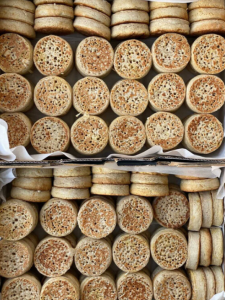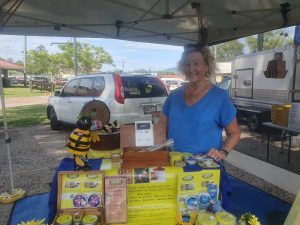What’s GREAT at the Market this Week?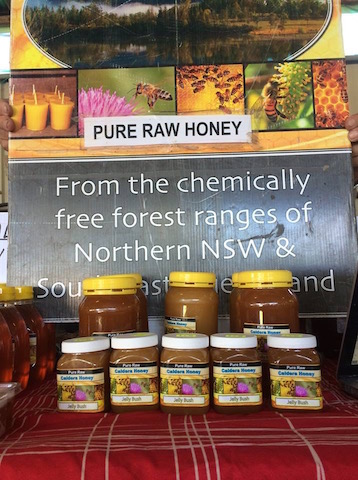
HONEY is in abundance; this delicious raw “food of the gods” (well W. H. Roscher thinks that both nectar and ambrosia were kinds of honey – and these were known as the food of the gods in Greek mythology).
Not only does it taste superb but the stories associated with honey production really show nature at its scientific best. I was fascinated to learn from Barry McLean – our resident apiarist – that bees precisely control the temperature inside their hives.
Keeping this love of honey tradition alive – both production and the joy of eating local honey with the flavours of local flora is Barry’s passion. The art of good bee keeping can take many years to refine and Barry has this experience.
 Last week he took delivery of new queen bees to install into 30 hives to refresh and revitalize activity that will lead to increased productivity. The old queens are moved on to start up new hives. With hives in a number of areas including Mt Nullum and Mebbin areas where there are iron barks, yellow stringy and a host of other suitable trees and in the Hastings Point area where the coastal heath and melalueca trees are flowering during the cooler months – Barry is kept very busy and active.
Last week he took delivery of new queen bees to install into 30 hives to refresh and revitalize activity that will lead to increased productivity. The old queens are moved on to start up new hives. With hives in a number of areas including Mt Nullum and Mebbin areas where there are iron barks, yellow stringy and a host of other suitable trees and in the Hastings Point area where the coastal heath and melalueca trees are flowering during the cooler months – Barry is kept very busy and active.
I was fascinated to learn from Barry that bees precisely control the temperature inside their hives. In warm weather the bees cool the hive by expanding the distance between bees to allow for better air circulation (some have to hand around in clusters outside) while the bees inside actively cool the hive by bringing in water from outside. Barry said that the bees line up in rows where the brood is and fan out the hot air with their wings to cool the hive. We all know that fanning across water is the basis for evaporative cooling and these very clever insects use this method especially on hot humid days.
During cooler weather a special type of bee which acts like a living radiator and is referred to as the “heater bees” has been found to play a crucial role in the survival of honey bee colo

nies. When temperatures drop to 18 or 19 degrees they use their bodies to provide a unique form of central heating within the hive.
The bees create heat by vibrating their abdomens or as scientists explain, they decouple their wings from their muscles so their muscles run at full power without moving the wings and this allows them to raise their body temperature extremely high.
Barry explained that “honey is wild food at its best – I simply decide on a good location for siting the hives, tend them with care and wait until its harvest time. The bees do the forag
ing, travelling about a 5 – 10 km radius from their hive”.
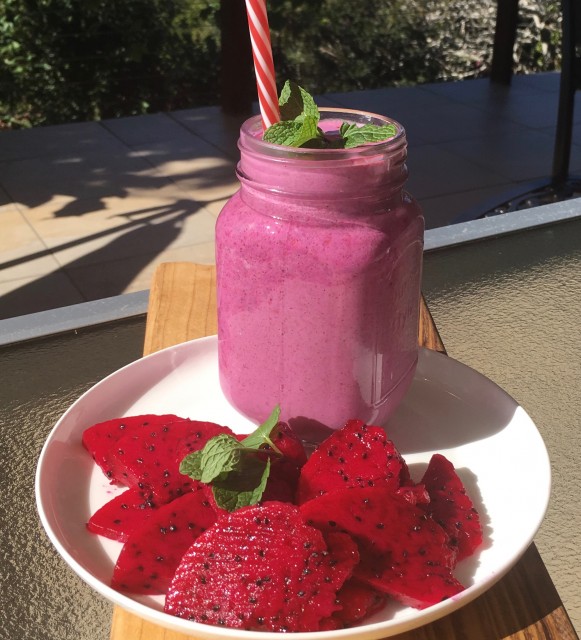
When you visit Barry at the market don’t forget to read his information about the natural ionising properties of beeswax; a good reason to buy natural beeswax candles!
Also great this week are:
- Dragon Fruit at Rainbow Fruit Flats – fresh and superb also known as Pitaya
- New season Delicious apples – have arrived this week plus we are lucky as there is one more week of delightfully sweet black muscatel grapes.
Seasonal produce returning soon:
- Tweed River Pecans – in April
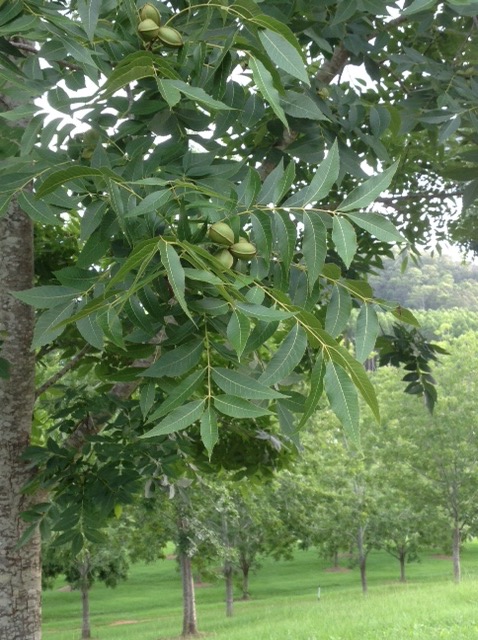
- Narbey’s Best Avocados
Blueberry Fields will be back late May or early June.
Absent this week: Belles Kitchen is absent – returning on 28th
Weather: Sunny and cloudy with maybe an occasional shower. Temperatures will range from an early 19 degrees increasing to the mid to high 20’s.
*REMEMBER* ATM at the market!
We have an ATM onsite for your shopping convenience – next to Flat
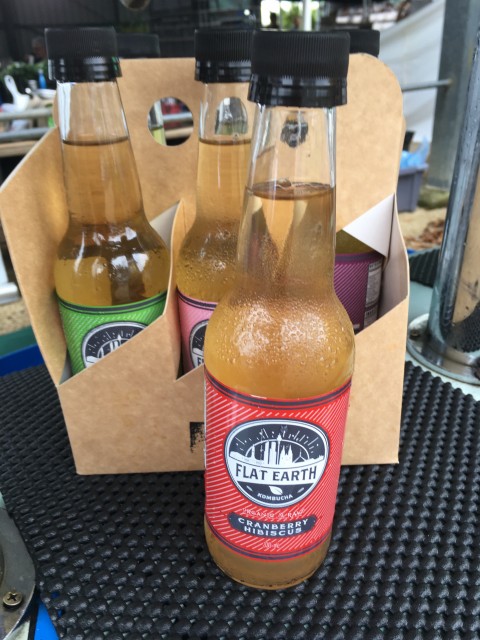
Earth Organic – where Jeremy sells kombucha
and delicious cold brewed coffee and juices.
Entertainment: Jesse Morris and Tom
Produce of the week (newest season produce is in bold):
- APPLES – new season Royal Galas AND Delicious
- Bananas
- Beetroot
- Capsicum
- CORN
- Cucumbers
- Grapes – LAST WEEK
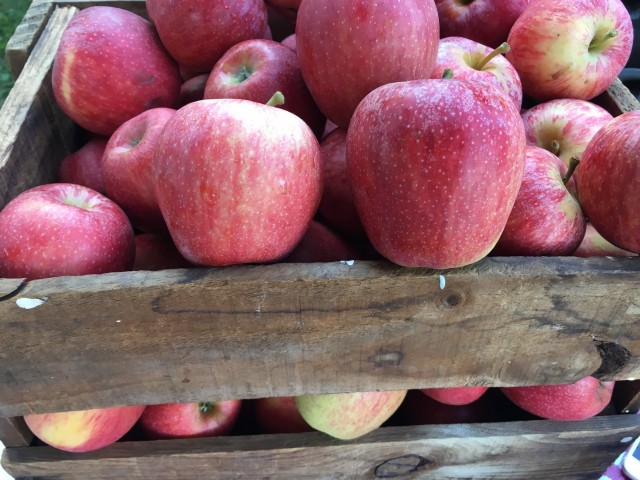
- Lettuce
- Macadamia Nuts
- Microgreens
- Passionfruit
- Paw Paw
- Pears
- Potatoes (various)
- Raspberries
- Rockmelon
- Sweet potatoes
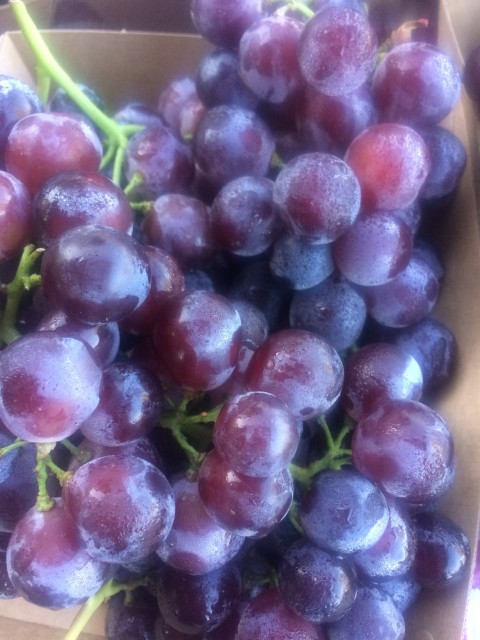
- Tomatoes
- Watermelon
- Zucchinis
Seasonal Produce List Updated:
Vegetables
Beans (+organic), Beetroot (+organic), Broccoli, Cabbage, Carrots, Capsicum, Cauliflower, Chard (organic), Chilli, Cucumber (+organic), Corn
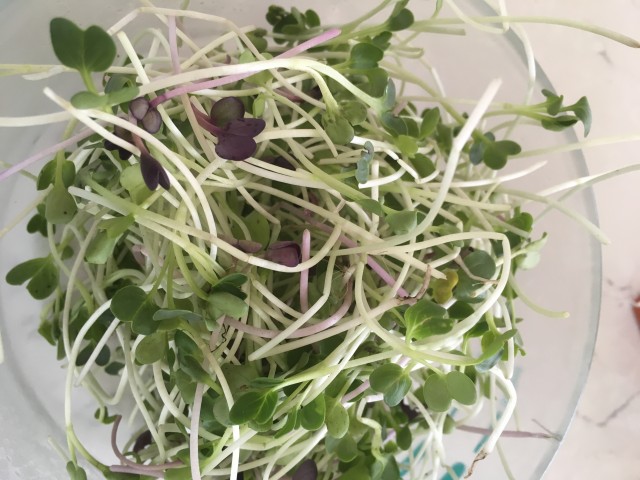
(+organic), Eggplant (+organic), Garlic (+organic), Herbs (basil + organic basil, coriander, fennel, ginger, rocket, turmeric and more), Kale (+organic), Lettuce (cos organic), Fancy Lettuce and mixed salad greens, Micro greens (+ wide variety of organic such as alfalfa, barley greens, sunflower, broccoli, chick pea), Peas incl snow peas (+organic), Mizuna, Onion (+organic), Mushrooms, Pak Choi (organic), Potato (Sebago) , Potatoes (kipfler ++), Pumpkin (+organic), Salad Mix, Silver Beet, Sprouts (+organic), Spinach (+organic), Sweet Potato (+organic), Tatsoi (organic), Swedes, Tomatoes (+organic), Taro, Turnip, Watercress, Zucchini (+organic).
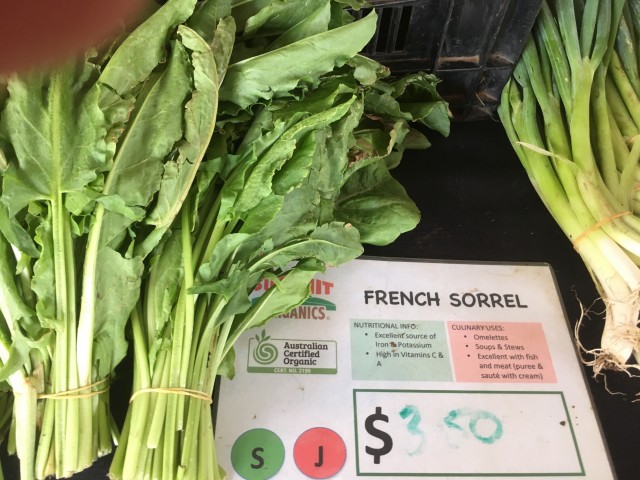
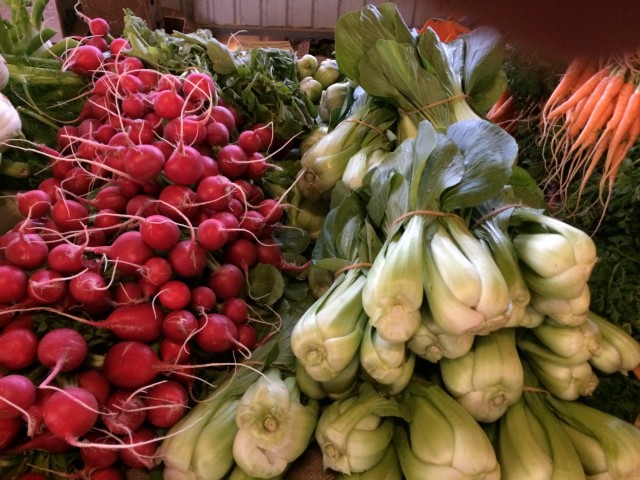
Fruit

Apples, Apricots, Avocados, Bananas (Cavendish, Lady Fingers (organic also), Black muscat grapes,Blueberries, Carambola (star fruit), Custard apples, Dragon Fruit, Grapefruit, Grapes, Kiwi fruit(organic), Lemons + Limes (incl organic), Lychees, Mangoes, Mandarin (organic), Oranges (organic), Passionfruit, Paw Paw, Pears, Plums, Raspberries, Rock melons, Sapotes, Strawberries, Watermelons.
Flowers – Gerberas, Lisianthus, Roses, Tropical flowers – sassy heliconias.
Eggs – including organic – see All Natural Meat Co and Sylva Lining Organics
Nuts – Pecan nuts and macadamia nuts, nut oils, butters and choc coated nuts
Dairy – Cows milk, cheeses and yoghurt, kefir, cultured butter ++ Goats milk and soft cheeses, kefir at Nimbin Valley Dairy.

Non-dairy milk replacements: – Almond milk at Bangalow Road (next to NVD)
Honey – Raw unprocessed Caldera honey, creamed honey and creamed honey with cinnamon! And bees wax candles.
Rice and Breads – A variety of artisan sour dough breads baked with a diversity of organic flours (including spelt and rye) and many flavours that use local market products including macadamia nut bread!
Mushrooms – Gourmet mushrooms – king oysters, white oysters, pink oysters, blue oysters, shiitake and Shimeji available at Wollumbin Gourmet Mushrooms and button mushrooms at Mountain View Eggs.
Meat – Beef, pork and goat (All Natural Meat Company produced), Salami (Nimbin Valley Diary) periodically + lamb and chicken sourced within the broader market radius and locally caught fish – very seasonal.

